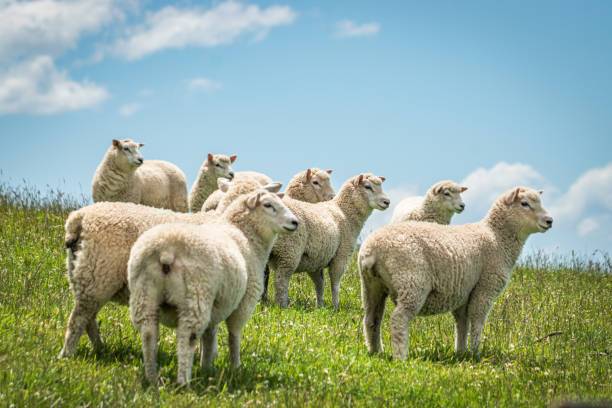Sheep farming is a cornerstone of agriculture worldwide, with sheep providing not only meat but also wool and milk. Across continents, several nations stand out for their significant contributions to sheep production, shaping global markets and economies. In this article, we explore the top 10 sheep producing countries, highlighting their key features, challenges, and contributions to the sheep industry.
Unveiling the World’s Top 10 Sheep Producing Countries: Champions of Wool and Meat
1. China China leads the world in sheep production, with a vast population of sheep raised for meat, wool, and milk. The country’s sheep industry is characterized by a mix of traditional and modern farming practices, with regions like Inner Mongolia and Xinjiang being major hubs for sheep farming. China’s sheep products are in high demand both domestically and internationally, driving the growth of the industry.
2. Australia Australia is one of the largest sheep producing countries globally, with vast grazing lands supporting extensive sheep farming operations. The country’s sheep industry is known for its focus on wool production, with Merino sheep breeds predominant. Australia also produces significant quantities of lamb and mutton for domestic consumption and export markets, contributing to its agricultural economy.
3. India India ranks among the top sheep producing countries, with a large population of sheep raised primarily for meat and wool. Sheep farming is an integral part of rural livelihoods in India, with traditional husbandry practices prevailing in many regions. The country’s sheep industry faces challenges related to disease management and productivity, but it remains an important contributor to the agricultural sector.
4. Iran Iran has a long history of sheep farming, with the industry playing a significant role in the country’s economy and culture. Iranian sheep breeds, such as the fat-tailed breed, are well-suited to the region’s climate and terrain. Sheep farming in Iran encompasses both traditional and modern practices, with the government providing support for breed improvement and productivity enhancement.
5. Sudan Sudan is a major sheep producing country in Africa, with a large population of sheep raised for meat and milk production. Sheep farming is an essential source of livelihood for many rural communities in Sudan, with traditional nomadic pastoralism prevailing in certain regions. The country’s sheep industry faces challenges such as drought and disease, but it remains a vital component of the agricultural sector.
6. New Zealand New Zealand is renowned for its sheep farming industry, particularly its production of high-quality wool and lamb. The country’s temperate climate and abundant pasturelands support extensive sheep farming operations. New Zealand’s sheep industry is characterized by a focus on pasture-based systems and sustainable farming practices, ensuring the welfare of both animals and the environment.
7. United Kingdom The United Kingdom has a long history of sheep farming, with iconic breeds like the Suffolk and Dorset playing a prominent role in the industry. Sheep farming in the UK encompasses diverse landscapes, from the rolling hills of Scotland to the lush pastures of Wales. The country’s sheep industry is known for its high standards of animal welfare and environmental stewardship.
8. Turkey Turkey is a significant sheep producing country, with a large population of sheep raised for meat, wool, and milk. Sheep farming is an integral part of Turkey’s rural economy, with traditional husbandry practices prevailing in many regions. The country’s sheep industry faces challenges such as land degradation and resource scarcity, but it remains an important contributor to the agricultural sector.
9. Pakistan Pakistan is a major sheep producing country in South Asia, with a large population of sheep raised for meat, wool, and milk. Sheep farming is an essential source of livelihood for many rural communities in Pakistan, with traditional husbandry practices prevailing in many regions. The country’s sheep industry faces challenges such as disease management and productivity enhancement, but it remains a vital component of the agricultural sector.
10. Algeria Algeria is a significant sheep producing country in North Africa, with a large population of sheep raised for meat and wool. Sheep farming is an essential source of livelihood for many rural communities in Algeria, with traditional pastoralism prevailing in certain regions. The country’s sheep industry faces challenges such as land degradation and water scarcity, but it remains an important contributor to the agricultural sector.
In conclusion, the world’s top 10 sheep producing countries play a vital role in meeting global demand for sheep products, including meat, wool, and milk. From China’s vast flocks to Australia’s iconic Merinos, each country brings its unique strengths and challenges to the sheep industry. As global demand for sheep products continues to grow, these countries will remain key players in shaping the future of the sheep farming sector.
Related: Top 10 Largest Lamb Producers in the USA
